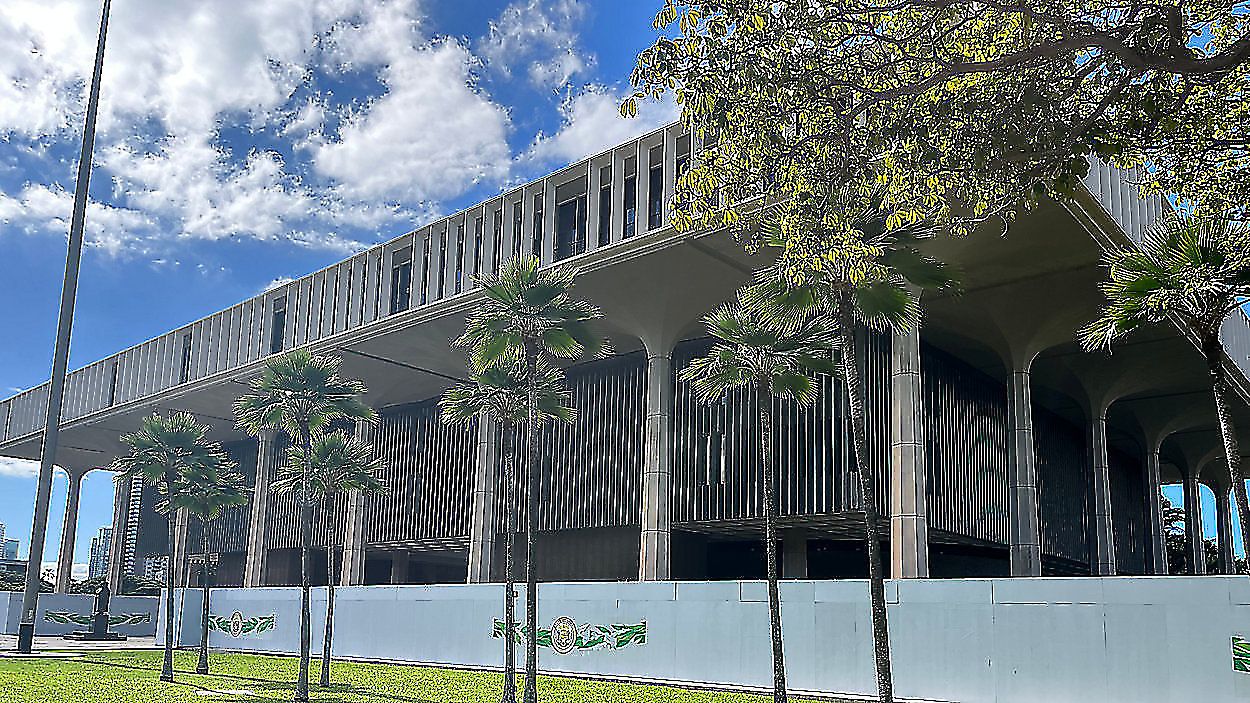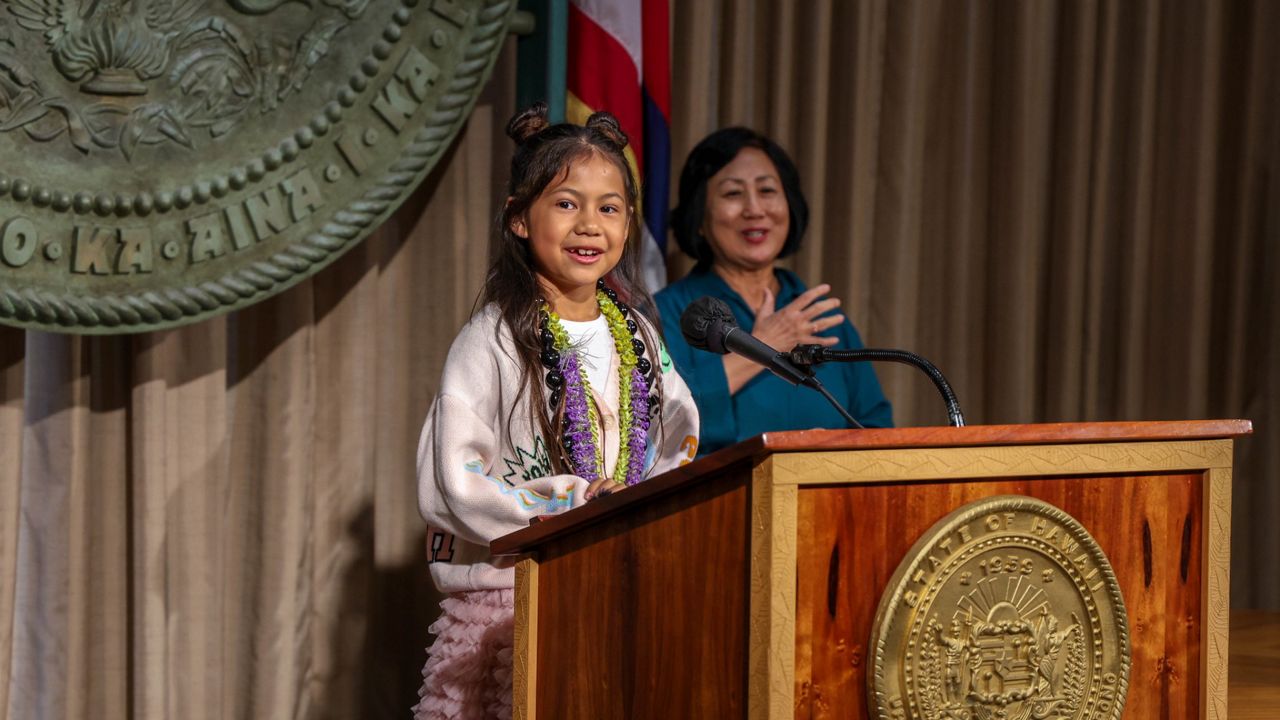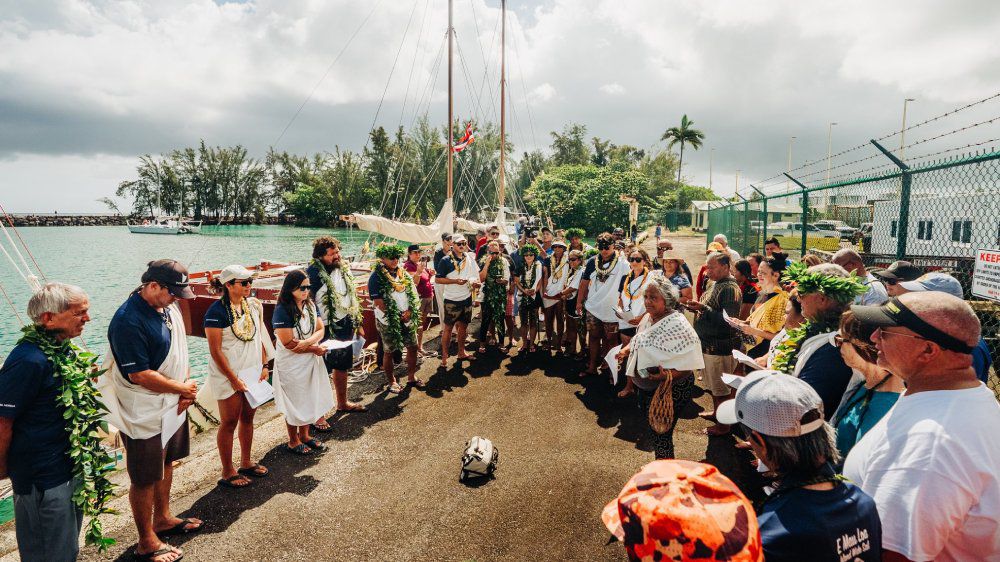With the 2025 Legislative session in the books, lawmakers are trumpeting district spoils and the advancement of statewide initiatives, advocacy groups are weighing the success and failures of their lobbying efforts and Gov. Josh Green has before him hundreds of bills awaiting his final consideration, including new laws relating to housing, education, biosecurity, climate change and other pressing concerns.
As always, the most far-reaching and impactful piece of legislation was the state biennium budget, with a proposed operating budget of just under $40 billion and a Capital Improvement Project budget of approximately $5.7 billion.
In the days since last week’s adjournment, lawmakers and community groups have highlighted less-publicized provisions included in House Bill 300, including the appropriation of some $6 million over two years for Planned Parenthood. This includes $3 million to fund ongoing reproductive health care served and another $3 million to offset the loss of federal Title funds.
“We’re incredibly grateful to our champions in the Legislature for their unapologetic support for patients and provider,” said Jan Wilbur, Hawaii state director for Planned Parenthood Alliance Advocates. “In a time when attacks on reproductive health are increasing across the country, Hawaii is sending a clear message: Here, we care for our communities. Thousands of people across our islands rely on Planned Parenthood every year, many underinsured or without insurance. This funding ensures Planned Parenthood health centers can keep their doors open, care remains accessible, and our values remain intact.”
The budget also includes funding for the Campaign Spending Commission to monitor 200,000 additional positions, an appropriation Common Cause Hawaii called, “a win for the state’s democratic infrastructure as this is the first chance for the CSC to expand since statehood.”
Green himself lauded the Legislatures passage of Senate Bill 1369, which establishes a climate impact fee (“green fee”) to help mitigate climate change and the impact of approximately 10 million annual visitors to the state. The fee is projected to raise $100 million annually.
The bill will increase the state’s portion of the Transient Accommodation Tax collections to 11% from 10.25%. This, along with additional TAT of 3% from each of the four counties, will result in a TAT of 14% statewide. It also applies General Excise Tax on top of room rates.
Green has already pledged to sign the bill.
“Given the devastation we saw on Maui in August of 2023, this measure is crucial because it will help us to deal with wildfire risk resulting from the climate change crisis,” Green said. “It is foundational to our ability to provide a safe and secure Hawaii for our children, our residents, our visitors and the environment.”
For many legislators, the bills they authored and shepherded had deep personal resonance. Such was true for Senate Vice President Michelle Kidani, who celebrated the passage of SB1300, which would fund an expansion of access to free school meals and provide support for so-called Asset-Limited, Income-Constrained, Employed families who may not qualify for existing public assistance but still struggle to meet their children’s basic needs.
“As the senator of District 18, I still remember classrooms in my district where teachers would keep snacks in their desks for students who come to school hungry,” Kidani said. “As a mother and a grandmother, it is my firm belief that no child should have to worry about where their next meal will come from — especially not while trying to learn.”
The bill appropriates $1.1 million over two years to provide free meals to public school students based on financial need and $2.8 million to subsidize meals for students from ALICE households.
Kauai legislators rallied behind House Speaker Nadine Nakamura’s HB1422, which exempts nonprofit and community-based organizations from the state’s Motor Carrier Law in certain instances.
As Nakamura noted, the proposed amendment of Hawaii Revised Statutes 271-5 has particular relevance to Kauai’s Haena State Park.
“This bill recognizes that programs like the Haena State Park access and entry management program, which reinvests its proceeds into environmental and community benefits, shouldn’t be treated like traditional, for-profit carriers,” she said. “These organizations’ efforts have proven effective in reducing traffic and managing visitor impact, but existing regulations create roadblocks for operations. This legislation intends to remove those roadblocks and inspire similar partnerships statewide to advance sustainable tourism and resource management.”
The law could also benefit non-profits like Hoala Kealakekua Nui on Hawaii Island, which is working with the Department of Land and Natural Resources to develop a shuttle and access management system to alleviate traffic around Kealakekua Bay State Historical Park.
Several public safety measures successfully crossed the legislative finish line and are awaiting Green’s final consideration, including:
- SB222, which extends the sunset date for the Illegal Fireworks Task Force;
- SB104, which limits the use of solitary confinement in prisons, creates a working group to improve how it’s used and requires regular oversight, reporting, and policy changes to ensure more humane treatment for inmates;
- SB223, which supports fire prevention initiatives and enhances coordination between agencies to reduce fire risks across the state; and
- SB1064, which establishes a permanent state fire marshal to lead fire safety efforts and coordinate enforcement across the islands.
“These bills address some of the most urgent challenges we’re facing right now in our state,” said Sen. Brandon Elefante, chair of the Senate Committee on Public Safety and Military Affairs. “We’ve made real progress by passing key legislation on public health, safety in correctional facilities, funding for law enforcement, cracking down on illegal fireworks, improving fire prevention, and supporting our Department of Defense.”
As part of ongoing efforts to combat invasive species and protect the state’s environmental resources and agriculture, the Legislature passed HB427, which establishes a deputy chairperson for biosecurity within the Department of Agriculture to lead invasive species prevention initiatives, creates a Biosecurity Response Program to respond to biosecurity threats, increases penalties for biosecurity violations and improves inspection protocols.
“We’re in a state of crisis for biosecurity,” said Sen. Mike Gabbard, chair of the Senate Committee on Agriculture and the Environment. “Last year, we passed a landmark bill (Act 231). This session we’re sending another bill to the Governor to continue our commitment to fighting invasives, whether it’s coconut rhinoceros beetles, little fire ants, coqui frogs or whatever. We have to step up our game in keeping these critters and invasive plants out of our islands, so we can keep paradise, paradise.”
Green has until July 9 to either sign a bill into law or veto it. He has until June 24 to notify the Legislature of which measures he intends to veto. Any bill that is not acted upon by the governor automatically becomes law after July 9. A vetoed bill may still be enacted if the Legislature overrides the veto by at least a two-thirds vote in each chamber during a special session.
Michael Tsai covers local and state politics for Spectrum News Hawaii. He can be reached at michael.tsai@charter.com.











